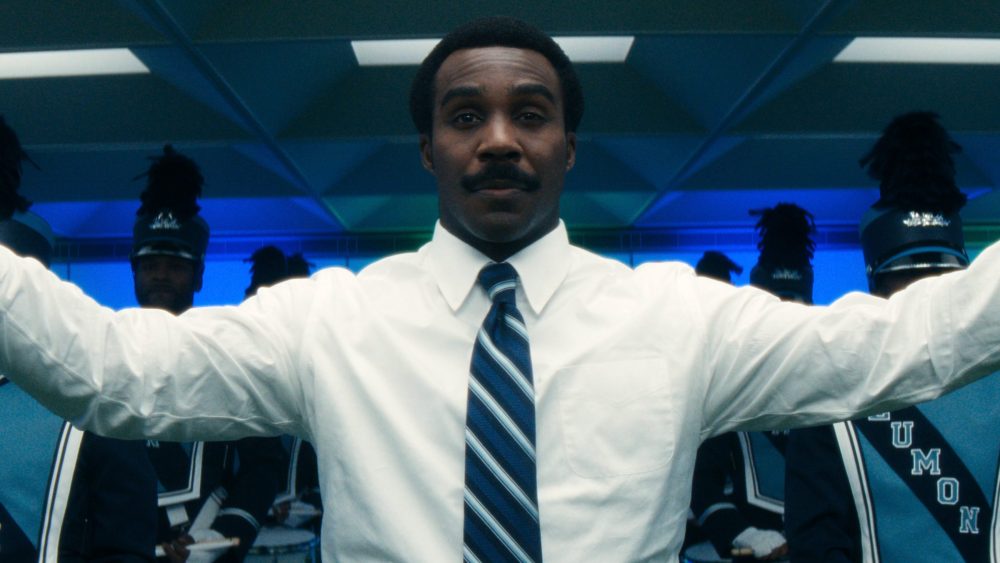SPOILER ALERT:This article includes spoilers for Season 2, Episode 10 of “Severance,” available now on Apple TV+.
Tramell Tillman was ready to step away from the dance floor.
After his character Mr. Milchick created a viral “Music Dance Experience” in the first season of “Severance,” he doubted that he could replicate such magic. However, when director and executive producer Ben Stiller proposed a marching band scene for the Season 2 finale titled “Cold Harbor,” Tillman recognized a chance to connect with his background. He reminisces about his time at two Historically Black Colleges and Universities (HBCUs), particularly Jackson State University, home to the renowned Sonic Boom of the South marching band, which inspired him greatly.
In the finale, as Adam Scott’s Mark S. completes the significant Cold Harbor file, Milchick, while performing as the drum major, leads the Choreography and Merriment department to celebrate Mark’s accomplishment. This episode marked a high point for Tillman, whose character has delivered some of the show’s most memorable lines, from “Marshmallows are for team players” to “Devour feculence.” He reflects on Milchick’s standout moments and the lasting impact of the marching band performance.
How physically demanding was it to film the scenes involving the bathroom door and vending machine?
Filming those scenes felt incredibly rewarding. Thanks to the excellent writing from Dan [Erickson] and his team, I didn’t have to act much when it came to taking down the vending machine. Initially, the choreography was different; I was supposed to fall with the vending machine, but I ended up knocking it over dramatically, which led to an even cooler take of me jumping triumphantly on top of it.
What do you think about the audience’s evolving perception of Milchick?
It’s been fascinating and gratifying to observe. People often make quick judgments based on appearances, but as they learn more about milkchick, opinions begin to shift. Some viewers may still see him strictly as a villain, which is fair, but recognizing complexity in his character sparks essential conversations about identity, a theme that the show explores continuously since its very beginning.
Your character’s big vocabulary becomes a source of reprimand in the workplace, reflecting a racial undertone. What are your thoughts on that?
It’s definitely a microaggression; the characters are policing Milchick’s language, which is incredibly belittling. This creates a dynamic where he is criticized not just for his mistakes but specifically for his way of communicating. It’s more about ego than actual protocol, and it’s rooted in an underlying racism that echoes throughout Lumon’s corporate structure.



